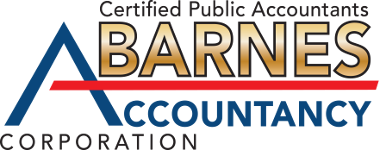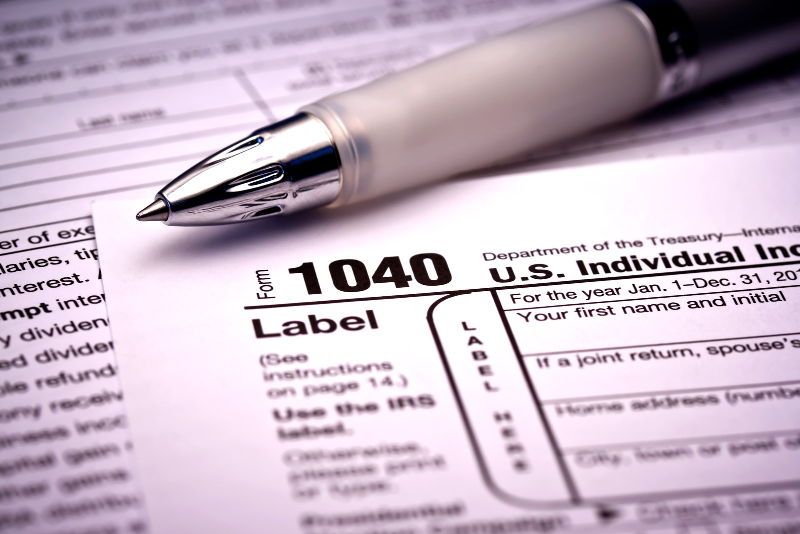The new decade is finally in full swing.
With big holidays the last couple weeks, you might be like me — this week is when the real work begins. The work of doing something NOW to start in on those goals for the year.
As I recently wrote: it’s not about the goals … intentions backed up by ACTIONS are what matter.
But wait — 2019 isn’t actually over yet.
No, I’m not stuck in the past. But hey there, it’s me, David Barnes — your friendly, Southern California TAX professional.
And I hate to break it to you, but we’ll be reliving your 2019 decisions here in the next few months when we complete your tax return. I hope that’s not too scary of a thought.
The very good news (if you’re my client) is that my team and I have big sleeves, and lots of tricks up in them to keep your tax bill as low as (ethically and legally) possible. And yes, that’s even if we choose together to opt for the standard deduction.
Those who know, know.
Now, the start of actual tax filing will not begin until January 27th (this is UPDATED from last week). That means that the IRS won’t be issuing refunds or otherwise officially accepting returns until that time.
And as in recent years, the IRS will delay processing (by 2-3 weeks) those income tax returns that have the Earned Income Tax Credit (EITC) or Child Tax Credit (CTC). Some shady characters have used those credits in the past for shady things (hence the issuance delays), but there ARE other options for faster refunds, if that’s something you want to explore.
So yes … living in 2019 again with good ol’ David. But let’s make that process smooth, shall we? Here’s my annual list of things you should start pulling together as soon as you can…
David Barnes’ 2019 Tax Documents List
“Be true to your work, your word, and your friend.” – Henry David Thoreau
Filing your taxes on your own is not for the faint of heart. That’s even with nice-looking softwares on the market which purport to make it easy for you.
But that’s what we’re here for. Let *us* make it easy for you.
Below is a list of what you will need during the tax preparation process. Not all of them will apply to you — probably MOST will not. Nonetheless, it’s a useful checklist.
Before you get overwhelmed: yes, this is a long list — but it’s the unfortunate reality of our tax code that it’s not even comprehensive! But these items will cover 95% of our clients. Really, this is for ensuring that we’re able to help you keep every dollar you can keep under our tax code.
Also note: Certain deductions went away this year, that we’re used to handling on behalf of our clients. And some that you might be used to as well. This list has changed a little, and I’ve notated additional changes coming down the pike.
But again … we will be your guide. That’s what we’re here for.
Even if for some strange reason you won’t be using our cost-effective services this year, feel free to use this list as a handy guide…
Personal Data
Social Security Numbers (including spouse and children)
Child care provider tax I.D. or Social Security Number
Employment & Income Data
W-2 forms for this year
Tax refunds and unemployment compensation: Form 1099-G
Miscellaneous income including rent: Form 1099-MISC
Partnership and trust income
Pensions and annuities
Alimony received
Jury duty pay
Gambling and lottery winnings
Prizes and awards
Scholarships and fellowships
State and local income tax refunds
Unemployment compensation
Health Insurance Information
NOTE — As it says on the IRS health insurance information page, form 1040 will not have the “full-year health care coverage or exempt” box and Form 8965, Health Coverage Exemptions, will no longer be used. You need not make a shared responsibility payment or file Form 8965, Health Coverage Exemptions, with your tax return if you don’t have minimum essential coverage for part or all of 2019.
* All 1095-A Forms from Marketplace providers (if you purchased insurance through a Marketplace)
* Records of credits and/or advance payments received from the Premium Tax Credit (if claiming)
Homeowner/Renter Data
Residential address(es) for this year
Mortgage interest: Form 1098
Sale of your home or other real estate: Form 1099-S
Second mortgage interest paid
Real estate taxes paid
Rent paid during tax year
Moving expenses (if in active military, and moving for new orders)
Reimbursements for moving (counts as ordinary income)
Financial Assets
Interest income statements: Form 1099-INT & 1099-OID
Dividend income statements: Form 1099-DIV
Proceeds from broker transactions: Form 1099-B
Retirement plan distribution: Form 1099-R
Capital gains or losses
Financial Liabilities
Auto loans and leases (account numbers and car value) if vehicle used for business
Student loan interest paid
Early withdrawal penalties on CDs and other fixed time deposits
Automobiles
Personal property tax information
Department of Motor Vehicles fees
Expenses
Gifts to charity (receipts for any single donations of $250 or more)
Unreimbursed expenses related to volunteer work
Investment expenses
Job-hunting expenses
Education expenses (tuition and fees)
Child care expenses
Medical Savings Accounts
Adoption expenses
Self-Employment Data
Estimated tax vouchers for the current year
Self-employment tax
Self-employment SEP plans
Self-employed health insurance
K-1s on all partnerships
Receipts or documentation for business-related expenses
Farm income
Deduction Documents
State and local income taxes (note: $10,000 limit, as last year)
IRA, Keogh and other retirement plan contributions
Medical expenses
Other miscellaneous deductions
An important thing to understand is that we will guide you through the process, and that although much has changed this year, we are on top of these changes on your behalf.
We’re here to help. Let me know if you have any questions.
David Barnes
(714) 541-4338
Barnes Accountancy Corporation

